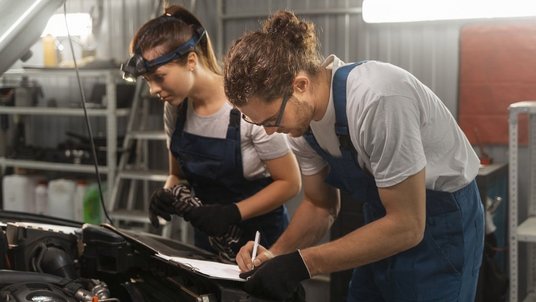
Republic of Montenegro

Capital: Podgorica
Area: 13,812 km²
Population: approx. 620,000
Official languages: Montenegrin (both in Latin and Cyrillic script), Albanian, Bosnian, Croatian, and Serbian
Podgorica
In close cooperation with Montenegro’s Ministry of Education, the Agency for Vocational Education and Training, and Montenegro’s School Board the OeAD's regional office in Sarajevo implements projects in vocational education and training. The ongoing education reform process in Montenegro provides the framework for this. The promotion of cooperation between schools and businesses, with a special focus on in-company learning, is one of the priorities of the vocational education and training reform.
Examples:
(Duration: 2022-2024)
The role of the vocational practical coordinators in vocational education and training is a multi-faceted one. Basically they are the interface between the schools and the companies, coordinate practical training at the school and at the employer's in both forms of training (dual and full-time school-based), work closely with teachers teaching the practical subjects and instructors in the companies and support them in the implementation of practical training. Their work thus makes an important contribution to the effective use of both learning venues, schools and companies, and thus to the quality of vocational practical training in general.
The aim of the project is to increase the quality of vocational education and training through effective quality development of in-company learning with a focus on the role and tasks of the vocational practical coordinators. Based on the needs assessments of the competent education authorities in all three partner countries four common project priorities have been identified for the regional project:
- needs-based anchoring of the role and tasks of the vocational practical coordinators
- standardisation of procedures and processes as an important aspect of quality development in the work of the vocational practical coordinators
- further development of the vocational practical coordinators' skills in line with the needs
- quality development and quality assurance through the introduction of quality assurance mechanisms for the vocational practical coordinators' work
Project results:
- On the basis of broad consultation processes standardised processes and procedures in the work of the vocational practical coordinators have been defined and piloted at the schools of vocational education and training.
- The standardised processes finalised on the basis of the piloting together with the tools necessary for implementation are available to all vocational practical coordinators in a manual/guide.
- The skills of the vocational practical coordinators at all schools of vocational education and training in Montenegro have been further developed and strengthened through needs-based in-service training.
- Mechanisms for quality development of the work of the vocational practical coordinators have been introduced at the schools.
Direct target groups:
- Headmasters/headmistresses and vocational practical coordinators of 30 schools
- Ministry of Education
- Centre for Vocational Education and Training
- Chamber of Commerce
Indirect target groups:
- Headmasters/headmistresses, teachers, vocational practical coordinators and pupils of all schools of vocational education and training in Montenegro
- Companies
(Duration: 2023–2024)
Besides school-based vocational education and training there is also dual training in Montenegro. To strengthen the cooperation between the business sector and schools and thus to enable high quality vocational education and training exchanges between the business sector and schools are organised in close cooperation with the Montenegrin Ministry of Education, the Centre for Vocational Education and Training and the Montenegrin Chamber of Commerce.
The Austrian Chamber of Commerce is also involved in this and contributes its expertise on cooperation between the business sector and schools. An exchange with all relevant stakeholders is also planned to optimise the legal framework conditions for full-time school-based and dual vocational education and training. Best practice examples of dual vocational training from the region and Austria will also be invited.


